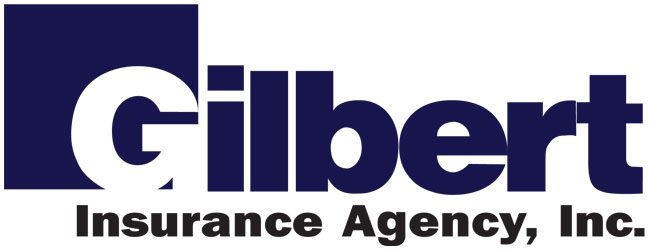
Personal and Professional Cyber Security Tips
This blog post was originally posted in 2016. It was updated in March of 2023
We live in a world of vast technological advancement that allows us to do things our parents could only dream of. In the click of a button, you can instantly have food delivered to your door or talk to someone on the other side of the world. Unfortunately, as we become more connected, we also become more vulnerable to online hackers. At Gilbert, our goal is to protect you and the things you value, which is why we’ve put together some advice to help keep you safe from cyber security threats.
General Online Safety Tips
Passwords
Are you still using ‘password’ or ‘12345’ as a password? If so, you are putting yourself and your business in great risk. Both consumers and businesses should actively work to create secure passwords that include a mix of numbers, letters, and symbols. We know this sounds obvious, however you should avoid using passwords that could easily be guessed, like your name or birthday. Lastly, make sure to use different passwords for different accounts; yes that means don’t use the same password for everything!
Opt for Multifactor Authentication
Just like double locking your doors generally makes it much more challenging for an intruder to enter your home, using multifactor authentication, or MFA, typically makes it twice as hard for hackers to gain access to your online accounts and data. This is because MFA requires an individual to present two or more credentials to prove that an online account belongs to them and gain access. When using multifactor authentication, the credentials you may be required to enter include information that is specific or personal to you, like your mother’s maiden name or the name of your first pet. Or you may be required to verify your identity with a fingerprint, by facial recognition, or through another form of biometric verification. Opting in to MFA for everything from your email to online banking can increase your accounts’ security because even if one of your credentials is compromised, most hackers aren’t likely to be able to figure out both identification requirements—or be willing to waste their time trying to do so when someone else’s account is less protected.
Personal Information
These days, scams come in all forms. Whether you’re being contacted via phone or email, always be wary about giving out your personal information. Recently, there have been increased reports of email phishing scams as well as reports of people pretending to make phone calls from the IRS or even your local police department. Always ask for the name of the caller and a call-back number and verify that the person really is who they claim to be before giving them any personal information.
Links and Attachments
Hackers can easily access your data or transmit a virus to your computer through a simple web link or attachment. You should never click a link in an email or text from a suspicious user. If your email has a setting that automatically downloads attachments, make sure to disable it. You should also be weary of ads on websites, even on reputable ones. Pop-ups or banner ads are other easy ways hackers can gain access to your computer and its data.
Software Protection
Make sure to install antivirus and anti-spyware software on all of your computers. But remember, installing the software is not enough! Vendors frequently come out with updates that fill gaps in previous versions of the software; make sure to regularly update the software as new versions become available. Not sure where to start? PC Mag has a great list of the best security software to purchase in 2016
Secure Wifi Network
Make sure your wifi network is hidden and that it requires a password. Encrypt your wireless signals to ensure that people outside of your home or business do not have access to your network. Remember, if someone is able to use your wifi, they’re not only slowing down your signal, they can also access the data you are transmitting!
Smart Home Gadgets
Although smart home apps and gadgets can make your life easier, they may also be making you more vulnerable to cyber attacks. Hackers are increasingly finding ways to access personal data through ‘Internet of Things’ devices, or devices that are connected to the internet. Cyber experts have already found ways to access information like passwords, viewing history, and personal photos through smart TVs, and warn that it is only a matter of time before hackers begin using the same techniques. Manufacturers of these connected devices are responding to these threats by increasing security on these apps and gadgets, but consumers should be aware of the cyber threats associated with this new technology.
Specific Tips for Business
Small businesses in particular are becoming a target for hackers due to their relatively limited resources compared to larger companies and corporations. So what can you do as a small business owner to protect your sensitive data? Follow the above tips, but also incorporate the following strategies to keep your business, employee, client, and partner data safe.
Assess your data
One of the first steps to protecting your business’ valuable data is to figure out exactly what information needs to be protected. Remember to think not only about information relating to your customers, but also information about your employees as well as supply chain and distribution partners. If your business uses form fields to collect information on leads, consider encrypting this data or inputting the information into a secured CRM.
Establish a cyber security protocol
Talk to your employees about what they can be doing to keep your business’ data safe. By creating a cyber security protocol, you can ensure that all of your employees understand what data is sensitive and what can be shared. Make sure to talk about having a safe social media presence as well to minimize the risk of an employee unknowingly sharing sensitive information via one of their social channels.
Be selective with your payment systems
Talk to your bank or your payment processing service to make sure that they are using the most up-to-date anti-fraud systems. Remember, credit cards with chips are based on a global payment standard called EMV, which is more secure than cards that rely on magnetic stripe technology. You should also consider having a designated computer that processes payments. Do not use this for any other services or to browse the web.
In today’s highly connected world, data breaches happen; it’s just a fact of life. Our best advice is to first understand how you are vulnerable and then create a plan that addresses these weaknesses. And don’t forget, cyber liability insurance is the best way to protect yourself in case a data breach does happen.
Want more peace of mind that you’re well-protected against a cyberattack or business data breach? Then you’ll want to have the proper cyber insurance coverage in place. At Gilbert, we offer both personal and business cyber insurance solutions that may offer the financial backing and professional support you need if a cyber incident occurs. Please give us a call today at (781) 942-2225 to learn more.
